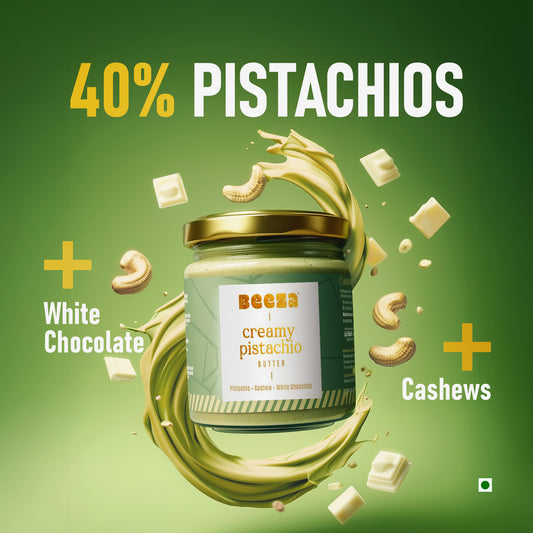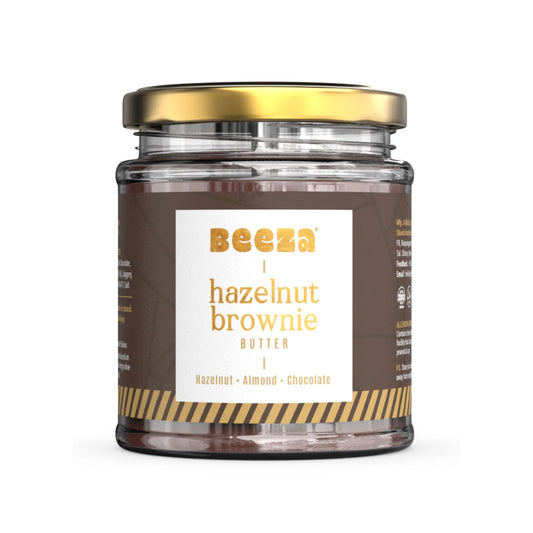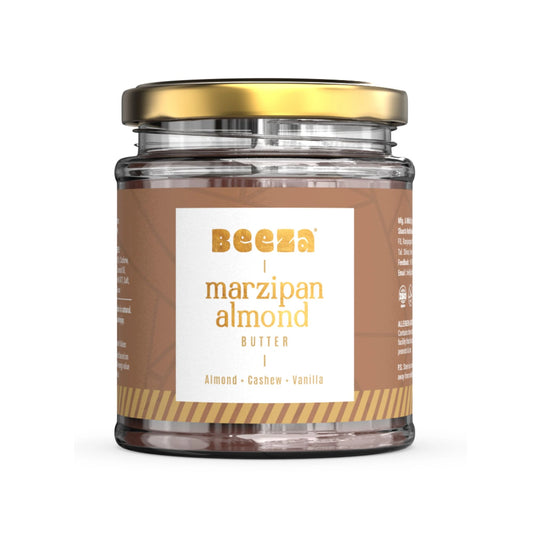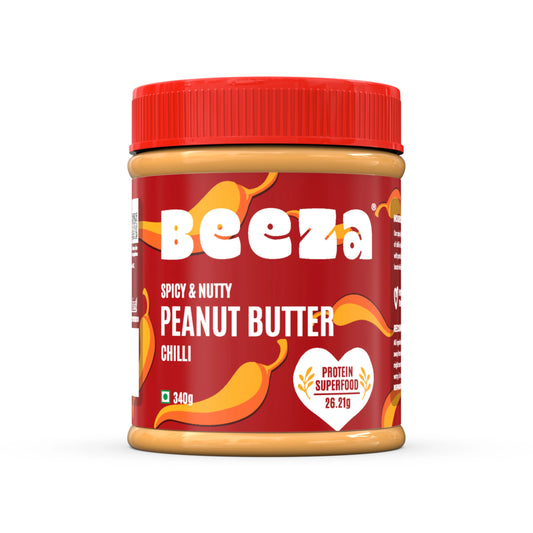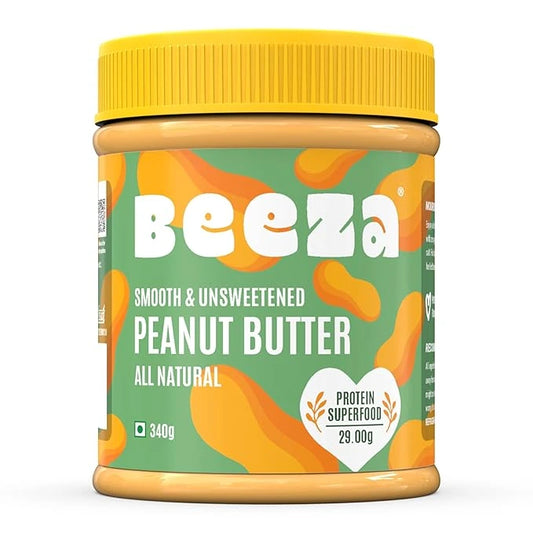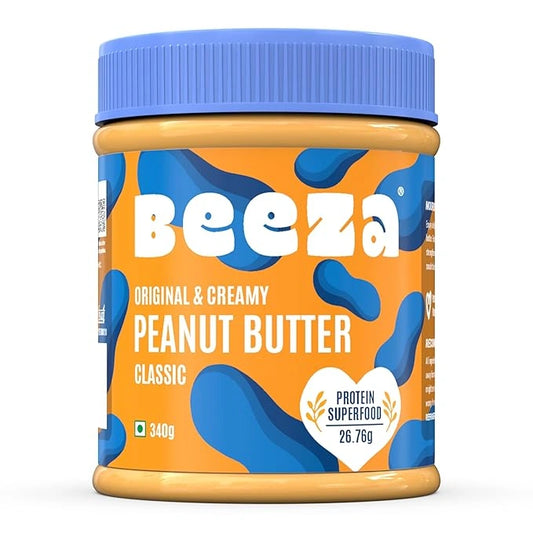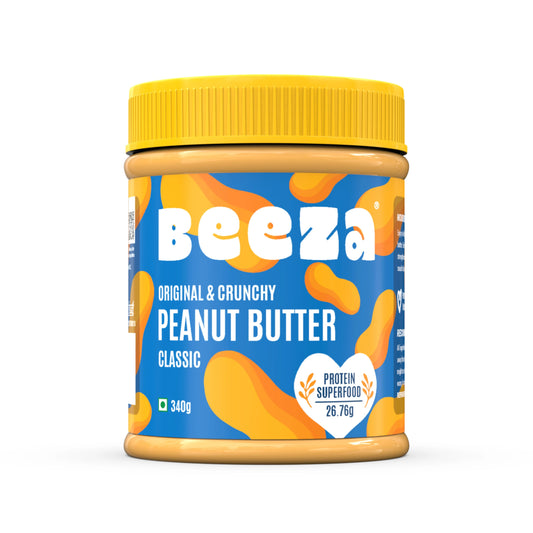The Science Behind Fat Content in Nut Butters: A Comprehensive Guide
When we hear the word "fat," most of us think of something to avoid - particularly when trying to eat healthy or lose weight. But here’s the thing: not all fats are bad. In fact, your body actually needs fats - particularly the right kinds of fats.
That’s where nut butters come in. Creamy, delicious, and full of healthy fats, nut butters are no longer just a spread for toast - they are now a part of a smart, balanced diet.
In this guide, we will look at the types of fat in nut butters, how different nut butters are nutritionally, and why these good fats are important for your overall health.
The Types of Fat in Nut Butters
Nut butters has a blend of three primary types of fat. Let's break it down:
a. Monounsaturated Fats
Monounsaturated Fats or MUFAs, are the stars of healthy fats. They are abundant in almond, peanut and pistachio butters. MUFAs can lower bad cholesterol (LDL), promote heart health, and may aid in weight loss.
b. Polyunsaturated Fats
Polyunsaturated Fats or PUFAs, are essential for your body, especially for the brain and cells. Walnut butter and spreads made with flaxseed are loaded with PUFAs, particularly omega-3 fatty acids, which reduces inflammation and offers heart benefits.
c. Saturated Fats
Saturated Fats are the bad guys (which is well deserved). Eating too much saturated fat may increase LDL cholesterol and negatively impact heart health. Some nut butters have natural saturated fat, and this small quantity is okay to consume as part of a reduced saturated fat diet .
How Different Nut Butters Compare
Every nut butter has its own fat profile. Here's how some popular options compare:
Peanut Butter
High in monounsaturated fats.
Has some saturated fats, but is still a healthy option, especially natural and unsweetened.
A great protein and healthy fats (energy) food option.
Hazelnut Butter
High in monounsaturated fats, as is olive oil.
A heart-healthy option when not loaded with added sugars, oils, and dips.
Can be used in sweet and savory meals.
Almond Butter
An excellent source of healthy fats to eat.
Naturally low in saturated fats.
Good option for those who are trying to eat a low fat and low cholesterol diet or, if in need of good fats for weight loss.
Pistachio Butter
Well-balanced MUFAs and PUFAs.
Has plant sterols to manage cholesterol.
Nutritious, low sugar and a great tasting alternative to similar spreads.
Other Nut Butters
Walnut butter is rich in omega-3 PUFAs, which are great for brain health.
Cashew butter is a slightly higher carb nut butter, but still a great option for good fats.
Macadamia nut butter is the highest in MUFAs and low in omega-6. Fairly good for keto diets.
Brazil nut butter is high in selenium and should be consumed in moderation.
Health Benefits of Fats in Nut Butters
Choosing the right kind of fat is key, and nut butters contain certain types of fats which have some amazing health benefits:
a. Cardiovascular Health
Monounsaturated and polyunsaturated fats lower bad cholesterol and support heart activity. Regular, moderate- intake of nut butters has been correlated with reduced heart disease risk.
b. Nutritional Powerhouses
Nut butters are high fat foods, but the right type of fat. They come packed with vitamins (like E and B), magnesium, fiber, and plant-based protein. Small but mighty when it comes to nutrition.
c. Satiety and Weight Management
The fats and protein contained in nut butters provide satiety, helping in portion control and help in managing unnecessary snacking, also great for a low carb diet for weight loss. The key - stick to the natural, unsweetened nut butters.
Important Considerations
Although nut butters contain healthy fats, there are a couple of things to think about when consuming:
Moderation Matters
Yes, they are healthy, but nut butters are still calorie-dense. A serving (typically 1-2 tablespoons) is plenty to get the benefits without overdoing it.
Check the Label
Always read the ingredients. Aim to choose nut butters that only include 1-2 ingredients (the nuts and maybe salt). Avoid nut butters that have added sugars, hydrogenated oils, and unnecessary preservatives.
Tailored to You
Not everyone can eat nut butters with a free mind. If managing cholesterol, then pick ones that are lower in saturated fat like almond or pistachio. If on high-fat or keto diet, you can eat macadamia or walnut butter.
Conclusion
Nut butters are not only tasty - they are rich in healthy fats, good for heart health, energy, digestion and maintain weight by providing important good fats in your diet.
Just remember to choose natural, no sugar added nut butters, eat in moderation, and find the right nut butter for you and your health.
Are you looking for clean and high-quality nut butters? You can find natural nut butters at Beeza, made in small batches without added sugar or preservatives. This is the best for people who care about flavor and real food as being good for them.
So what are you waiting for? Take a spoon, spread it on, and give your body good fats.

